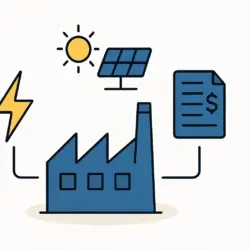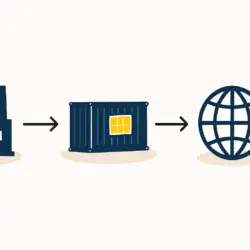Thailand Unveils Major Thailand solar tax incentives to Boost Household Solar Adoption
The Thai Ministry of Energy is developing a significant tax incentive program for households interested in installing solar panels, a key move aimed at promoting clean energy and reducing national carbon emissions. This initiative is a central part of the government’s “Quick Big Win” policy, designed to support decarbonization goals and encourage the broader adoption of renewable energy solutions across the country.
The new program will offer substantial tax incentives for households that install solar panels, targeting an initial 90,000 participants. This is expected to generate an investment of approximately 20.25 billion baht. The policy is a direct effort to lower household energy costs while simultaneously stimulating economic growth and job creation within Thailand’s burgeoning green sector.
Key Details of the New Solar Incentive: Understanding Thailand solar tax incentives
At the heart of the initiative is a generous financial benefit for homeowners. Each participating household can receive a tax deduction of up to 200,000 baht related to the cost of solar panel installation. This represents a significant enhancement of Thai solar tax incentives, making solar energy more accessible than ever before.
This financial support is designed to work in tandem with recent legislative updates, such as the new Thailand solar rooftop law, which has already simplified the installation process for residential systems. By pairing streamlined regulations with powerful financial incentives, the government aims to accelerate the transition to a low-carbon economy. The policy aligns with broader goals of investment promotion and increasing private-sector involvement in national energy infrastructure.
Supporting Thailand’s Ambitious Climate Goals with Thailand solar tax incentives
The environmental impact of this program is projected to be substantial. The government anticipates that the adoption by 90,000 households will reduce carbon emissions by 280,000 tons of CO₂ annually and save an estimated 585 million electricity units per year.
This initiative is a critical component of Thailand’s long-term energy strategy. As detailed in the Thailand Solar Panel Manufacturing Report, the nation has set an ambitious target for renewable energy to account for 30% of its power mix by 2037. This household incentive program complements other large-scale efforts, such as the decision to increase the Thailand solar power quota for public projects, demonstrating a multi-faceted approach to achieving its climate objectives. The growth in domestic demand is also expected to bolster the entire local supply chain, from understanding the basics of solar panel manufacturing to final installation.
A Comprehensive Push for Clean Energy with Thailand solar tax incentives
This tax incentive is part of a larger set of renewable energy initiatives under the “Quick Big Win” strategy. The government is also promoting solar-powered agricultural water pumping and community solar farm projects, which are collectively expected to attract billions of baht in investments.
To further facilitate growth, new power purchase agreements related to solar projects are expected to open by November 2025, which will encourage more investment and clean energy generation. This places Thailand’s efforts firmly within the context of a worldwide energy transition, as countries across the globe scale up their renewable capacities, a trend captured in the Global Solar Report.
For those looking to understand more about the technology behind this green revolution, you can learn more about the fundamentals of solar energy with our free e-course.



